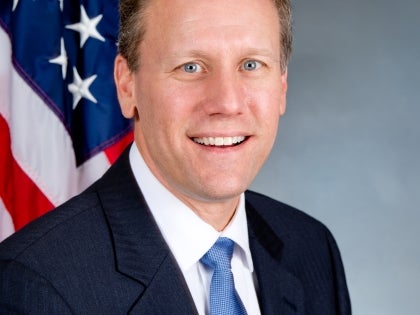
New York's education reform agenda praised, panned at public hearing in Syracuse
By
Follow on Twitter
on October 01, 2013 at 6:36 PM
Schools across New York may be barred from revealing the performance ratings of their teachers, but David Syracuse had no qualms about releasing his own score at a public forum today.
"I'm a 79," he announced at a hearing of the state Senate Education Committee at Syracuse City Hall. "I don't know, does that mean that 21 percent of what I say is complete froth?"
Syracuse, a science teacher at Tompkins-Seneca-Tioga BOCES, said the process that culminated in his 79 rating -- considered "effective" under the state's system -- was a time-consuming exercise that didn't do anything to help him or his students.
"It didn't improve my teaching at all," he said.
Syracuse's remarks came near the end of a five-and-a-half-hour hearing on the state's school reform agenda, which included testimony from state Education Commissioner John King, the state Parent Teachers Association, teachers union representatives, superintendents, principals and others.
The testimony ranged from congratulatory to scathing. But there was none of the cheering or other crowd reaction that characterized the committee's hearing on Long Island. Few parents or teachers were in the City Hall crowd of about 100.
The aptly named Syracuse was the only current teacher to testify at the hearing. Like most of the speakers --- and the seven senators on the panel -- he said he embraced the new Common Core academic standards as necessary to push his students to greater achievement.
But like most of the other speakers, he had serious concerns about how the state's education initiatives are being rolled out by the state Education Department.
He said there is too much testing and that the testing takes away from the time teachers spend working with students. He questioned the heavy influence of Pearson Inc., the multinational corporation that developed the new Common Core-aligned tests for New York and is involved in other areas, such as curriculum development and teacher preparation.
"Are we privatizing education?" he asked. "If we are, let's call it that and have a discussion about it."
The most devastating critique of the day was dished out by Kevin Ahern, president of the Syracuse Teachers Association. He said state reductions have led the city district to cut 25 percent of its employees in recent years while maintaining the same number of students.
He said giving "flawed tests" in April that were based on Common Core standards that teachers and students were not yet comfortable with added stress to an already fragile system.
"When you give those to kids who already struggle with standardized tests, many of whom struggle to get to school every day, that is not ripping off the Band-Aid, that is actually pouring salt into the wound," he said. "It is demoralizing to those children and it is demoralizing to those of us who work with them every day."
He said another stress on the system is a state and federal requirement that chronically underperforming schools undergo "turnaround" programs. For Syracuse, that meant that five district schools had to transfer out their principals and at least 50 percent of their staffs this year.
"There is no science behind the 50 percent number," he said. "This is an arbitrary number, completely made up by people who don't work in education."
Ahern called for the Board of Regents to postpone its plan to introduce Regents exams based on the tougher Common Core standards and to put a three-year moratorium on tying state tests to consequences for students and teachers.
Syracuse Superintendent Sharon Contreras told the panel she believes the Common Core standards are "vital and necessary," but she agreed with Ahern that the district needs more resources.
She said the district increased its summer training of teachers by a third this year to prepare them for the new standards. In all, the district spent $9 million last year for training and to develop the materials to implement the new standards, and another $6 million to implement the required teacher evaluations.
Flanagan, who was flanked during the hearing by Sens. John DeFrancisco, R-Syracuse, and David Valesky, D-Oneida, asked several of those who testified whether they thought the Education Department needs to communicate more effectively with school administrators, teachers and parents. Most said yes.
Diana Bowers, superintendent of the Hamilton Central School District in Madison County, gave the department a "3" rating for communication on a one-to-10 scale, with 10 being the highest.
"If they listened a lot harder ... it would benefit everybody," she said.


